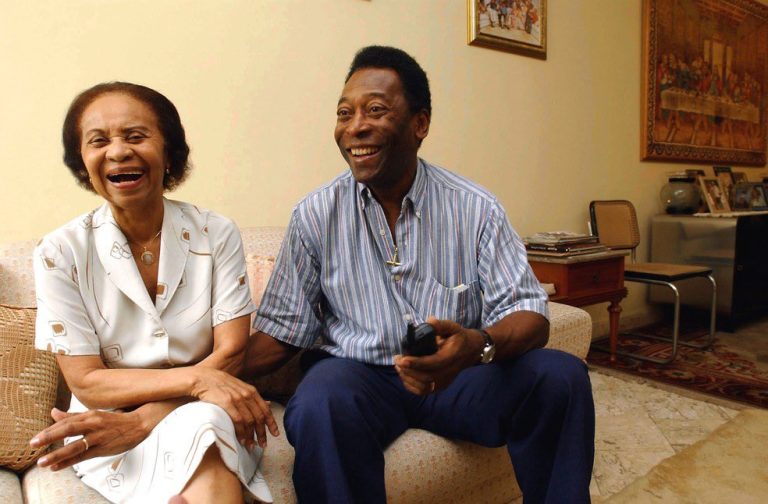The dearth of Brazilian coaches at Europe’s top teams is a hot topic in our sport. While other countries, such as Argentina, shift talent to the continent, Brazil accumulates failed experiences and struggle to recruit experts.
There is no definitive solution since many factors contribute to this lack of opportunity. No coach has been considered in recent years to take over a good squad from outside the country, and those who have had the chance have failed spectacularly.
Great Brazilian coaches who did not succeed in Europe
It’s tough to think of a Brazilian coach that has had a lot of success in Europe. Zico is perhaps an exception, as he became the “King Arthur” of Turkish football, but he did not coach quality teams on the continent. In fact, many that made it to the big leagues didn’t last long.
Remember the passage of some Brazilian coaches through European football!
- Vanderlei Luxemburgo: He was the only Brazilian coach to manage Real Madrid, and although he did not have poor results, he was plagued by conflicts with his players, a feud with the president, and was sacked in less than a year.
- Luiz Felipe Scolari: He was a five-time world champion who had success with the Portugal national team, finishing second in Euro 2004 and reaching the semi-finals of the 2006 Cup. Then he moved to Chelsea and earned the nickname “Big Phil,” but his European career was cut short due to a lack of success.
- Carlos Alberto Parreira: Another World Cup winner, Parreira, finished with Valencia before starting the 1994 World Cup. Even with major signings like Mazinho, he was unable to produce results. Before returning to Brazil in 1996, he won the Turkish Championship with Fenerbahce.
- Zico: The red-black hero had a good season with Fenerbahce, as he reached the Champions League quarterfinals. He went on to coach Olympiacos of Greece after that, however he did not have the same success and was sacked.
- Abel Braga: He had a short stint at Olympique de Marseille in 2000, but was sacked after just 16 games. He was signed by Lugano in 2021, but he didn’t last long in Switzerland.
Other coaches, such as Sylvinho and Leonardo, had chances in Europe as well. By the way, the latter managed Inter Milan and Milan, but was a better manager and is now at Paris Saint-Germain.
Argentine coaches have more success
Our Argentine colleagues, unlike their Brazilian counterparts, are distributed throughout Europe’s top teams. The two most well-known are Diego Simeone, the coach of Atlético de Madrid for 11 years, and Mauricio Pochettino, the coach of Paris Saint-Germain.
Marcelo Bielsa (Leeds United) and Jorge Sampaoli (Juventus) are two more successful managers (Marseille). The country’s cultural proximity to Europe is definitely beneficial, but there are other factors to consider, such as personality and investment. Since 1963, the country has maintained a school dedicated to training coaches, making them more competent than Brazilians.
Possible explanations for the lack of Brazilians in European leagues
The reason for this divide between Brazilian managers and European football is difficult to explain. As we’ve seen, well-known people had the opportunity to take over massive clubs on the Old Continent, but they failed. The cultural divide is obvious, owing to the fact that many professionals are unable to communicate in English.
There is also a sense of security in Brazilian football. Luxemburgo and Abel Braga, for example, have a market in the nation despite not having had particularly good performance in recent years. They emerge as probable replacements whenever a coach is sacked. As a result, management have little interest in cultivating fresh talent or banking on the activity’s bright future prospects.
Elite coaches, on the other hand, earn substantial incomes in Brazil and seek other nations like the United Arab Emirates and Qatar for better financial circumstances. The idea of gaining Euros and obtaining worldwide recognition is appealing, but previous unpleasant experiences and the comfort zone in Brazil discourage coaches from “exporting.”
Middle East market is a target for Brazilians
Middle Eastern football has been a popular destination for Brazilian coaches in recent decades. Financial considerations are paramount, since professionals make far more than is compensated here.
Additionally, they are calmer leagues with less crowd pressure and a greater emphasis on outcomes. As a result, many experts take this sort of offer, stay there for a few years, and then return to the Brazilian market, unconcerned about championships or successes earned overseas.
New attempts in the future
Although the market is not very active, prominent Brazilian technicians are looking for possibilities overseas. Cuca, Renato Gacho, and Rogério Ceni were asked to participate in the CBF Academy’s License PRO course, which is recognized by worldwide organizations.
Thus, they meet a criterion for receiving approaches from European clubs and, who knows, maybe forming a partnership with a team of expression from the Old Continent in the future. While this situation seems remote at the moment, Brazilian football remains on the radar of the world’s superpowers, and nothing can be ruled out.



